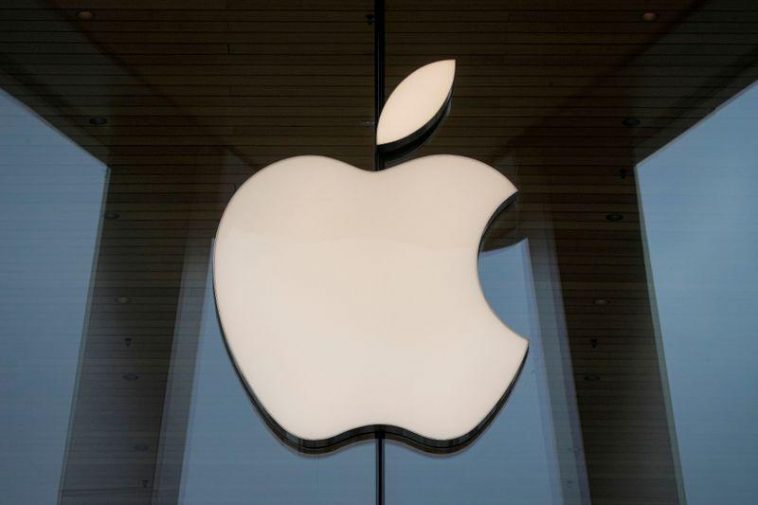In a strategic move to revitalize slowing computer sales, Apple is gearing up to revamp its entire Mac lineup by introducing a new suite of in-house processors tailored to showcase the power of artificial intelligence.
The company, which recently launched its first Macs featuring M3 chips, is reportedly already in the advanced stages of developing the next generation – the M4 processor. Sources familiar with the matter have indicated that the new chip will be available in at least three main variants. Furthermore, it has been suggested that Apple intends to incorporate the M4 processor into every Mac model. These details have been shared by individuals who have chosen to remain anonymous due to the fact that the plans have not yet been officially announced.
During a pivotal period, the new Macs are in the works. Following a peak in 2022, Mac sales experienced a 27% decline in the last fiscal year ending in September, with revenue from the computer line remaining stagnant during the holiday season. In an effort to reinvigorate the Mac business, Apple hosted a launch event last October spotlighting the M3 chips. However, these chips did not deliver significant performance enhancements compared to the prior year’s M2.
Apple is working to catch up in the field of AI, where it has been perceived as lagging behind Microsoft, Google, and other tech companies. The introduction of new chips is a key component of its extensive effort to integrate AI capabilities into all of its products.
Apple is currently targeting the release of updated computers, starting from late this year and continuing into early next year. The lineup is expected to include new iMacs, a low-end 14-inch MacBook Pro, as well as high-end 14-inch and 16-inch MacBook Pros, all featuring M4 chips. Additionally, new Mac minis are also anticipated to be part of the release. It’s important to note that these plans are subject to change, as an Apple spokesman declined to comment.
The upcoming refresh will bring a swift update to the iMac and MacBook Pro, following their recent October upgrades. Meanwhile, the Mac mini, last updated in January 2023, is also due for an overhaul.
In the coming years, Apple plans to release a series of M4 Macs, with updates scheduled throughout 2025. This lineup includes refreshed versions of the 13-inch and 15-inch MacBook Air in the southern hemisphere autumn, the Mac Studio around the middle of the year, and the Mac Pro later in 2025. Notably, the MacBook Air recently received the M3 chip, while the Mac Studio and Mac Pro were equipped with M2 processors last year.
Apple Mp4
The M4 chip line comprises an entry-level variant named Donan, more robust models known as Brava, and a high-end processor codenamed Hidra. The company intends to emphasize the AI processing capabilities of these components and their integration with the upcoming version of macOS, slated to be revealed in June at Apple’s annual developer conference.
The Donan chip is set to be integrated into the entry-level MacBook Pro, the new MacBook Airs, and a low-end version of the Mac mini. On the other hand, the Brava chips will power the high-end MacBook Pros and a more expensive iteration of the Mac mini. Apple is currently conducting tests on different versions of the Mac Studio, including one with a yet-to-be-released M3-era chip and a variation of the M4 Brava processor.
The Mac Pro, Apple’s top-tier desktop, is poised to receive the new Hidra chip. Despite being the lower-selling model in the company’s computer line-up, it boasts a loyal fan base. Following customer feedback about the specifications of Apple’s in-house chips, the company plans to enhance the machine next year.
In an effort to enhance its product offerings, Apple is contemplating the possibility of enabling its premium Mac desktops to support up to 512GB of memory. This would be a significant upgrade from the current maximum memory capacity of 192GB for the Mac Studio and Mac Pro. It is noteworthy that the earlier Mac Pro, powered by an Intel processor, supported as much as 1.5TB of memory using off-the-shelf components that could be added later. However, with Apple’s proprietary chips, the integration of memory into the main processor presents challenges for expanding memory capacity.
Apple’s primary focus this year is to integrate new AI capabilities across its product lineup. The company is set to unveil a host of innovative features at its upcoming June developer conference, with a significant portion of these enhancements being developed to operate directly on the devices themselves, rather than relying on remote servers. The introduction of faster chips will play a key role in driving these advancements. Furthermore, Apple is gearing up to implement AI-focused enhancements to this year’s iPhone processor.
Apple’s transition to in-house chips is part of a longstanding effort called Apple Silicon. The company first introduced its own semiconductors in the original iPad and iPhone 4 in 2010, and later incorporated the technology into Mac systems in 2020. The objective is to enhance the integration of hardware and software with underlying components and transition away from Intel processors.
Apple’s transition to Mac chips has proven to be a resounding success, significantly enhancing performance and streamlining the redesign of their latest devices, including the MacBook Air, iMac, and MacBook Pro. Leveraging the same ARM Holdings architecture as the iPhone and iPad processors, these Mac chips enable sleeker product designs with improved battery life and reduced reliance on cooling fans.



